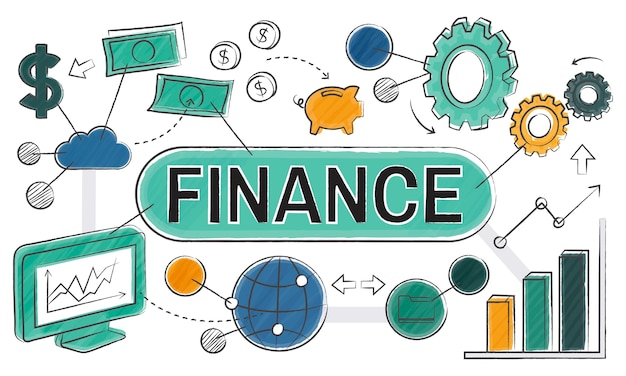**Title: Mastering Your Finances: A Holistic Approach to Financial Wellness

1:Effective budgeting lies at the heart of financial stability. Track your income and expenses meticulously to understand where your money is going. Create a budget that allocates funds for essentials, savings, and discretionary spending. Embrace technology by utilizing budgeting apps and tools that streamline the process and provide valuable insights.
**Emergency Fund and 2:Insurance:**
Building an emergency fund is essential to weather unforeseen financial storms. Aim to save at least three to six months' worth of living expenses in a readily accessible account. Additionally, invest in insurance coverage to protect yourself and your loved ones against unexpected events such as illness, accidents, or property damage.
3:**Debt Management:**
While debt can be a useful tool, excessive debt can cripple your financial freedom. Prioritize paying off high-interest debt such as credit cards and personal loans. Explore debt consolidation options to simplify payments and reduce interest costs. Adopting a debt repayment strategy empowers you to regain control of your finances and accelerate your journey towards financial independence.
4:**Investing for the Future:**
Investing is the cornerstone of wealth accumulation. Educate yourself about different investment vehicles such as stocks, bonds, mutual funds, and real estate. Diversify your investment portfolio to mitigate risk and maximize returns over the long term. Consider consulting with a financial advisor to tailor an investment strategy that aligns with your goals and risk tolerance.
5:**Retirement Planning:**
It's never too early to start planning for retirement. Take advantage of employer-sponsored retirement plans such as 401(k)s and individual retirement accounts (IRAs) to save for the future. Maximize contributions and leverage employer matching contributions whenever possible. Regularly review your retirement plan to ensure it remains aligned with your evolving financial situation and goals.
6:**Continuous Learning and Adaptation:**
The world of finance is dynamic, and staying informed is paramount. Continuously educate yourself about personal finance concepts, economic trends, and investment opportunities. Remain flexible and adaptable in your approach, adjusting your strategies as needed to navigate changing circumstances and seize new opportunities.
7:**Conclusion:**
Mastering your finances is not a one-time achievement but a lifelong journey. By setting clear goals, practicing disciplined budgeting, managing debt wisely, investing prudently, and planning for the future, you can pave the way towards financial freedom and security. Remember, financial wellness is not just about accumulating wealth but also about achieving peace of mind and fulfillment in all aspects of life. Start taking control of your finances today, and embark on the path to a brighter financial future.







